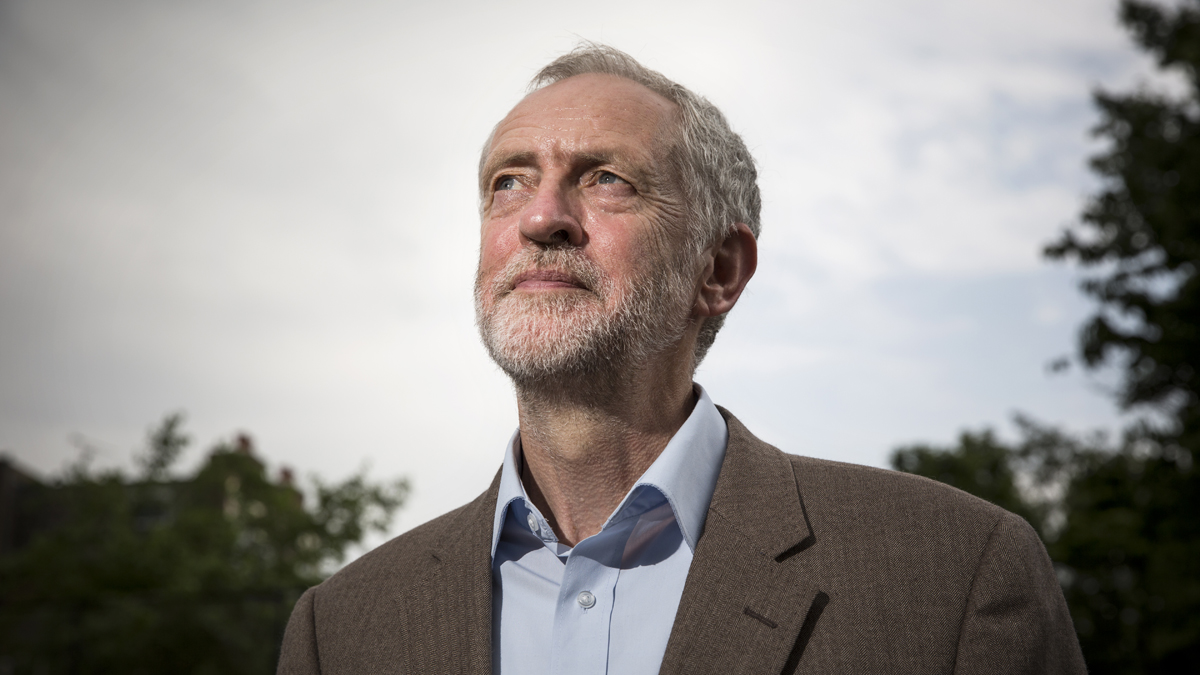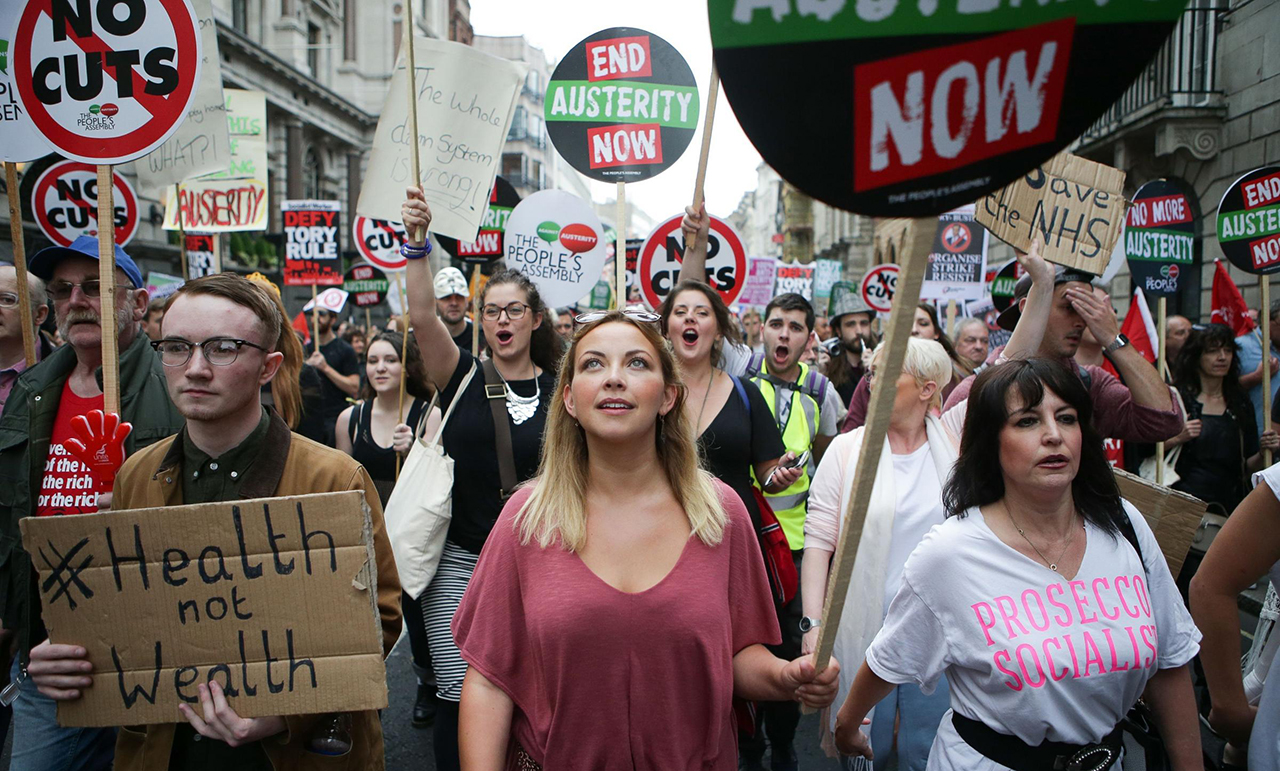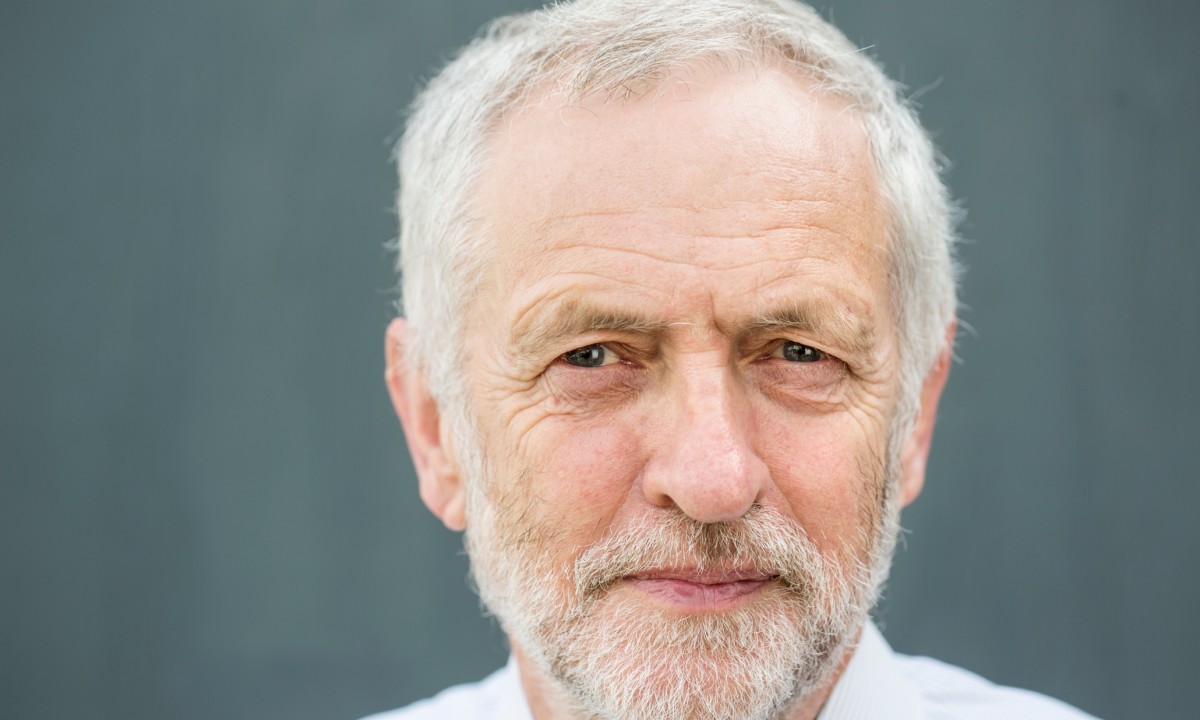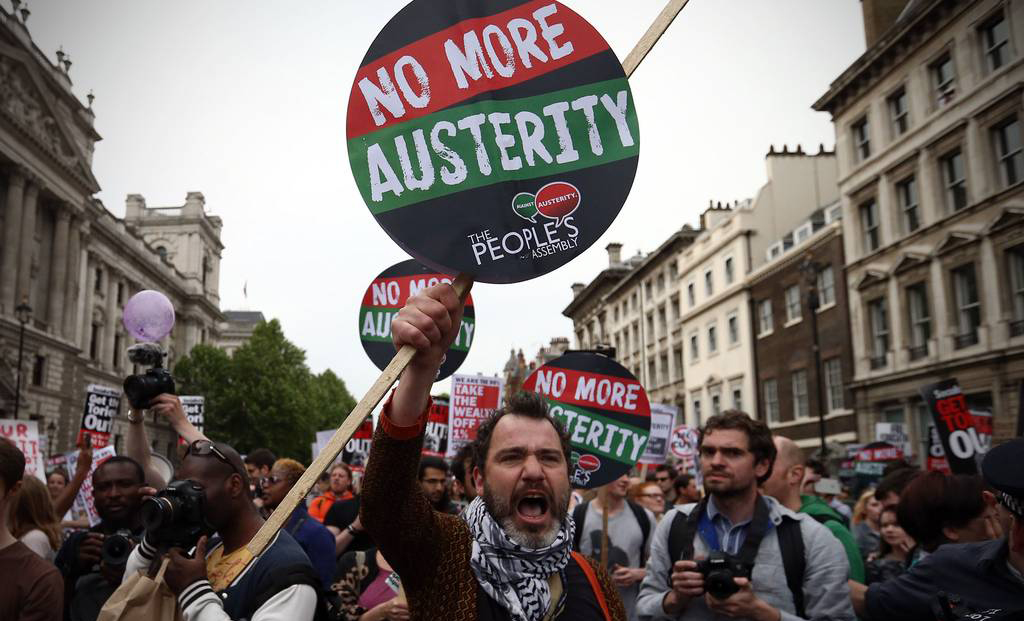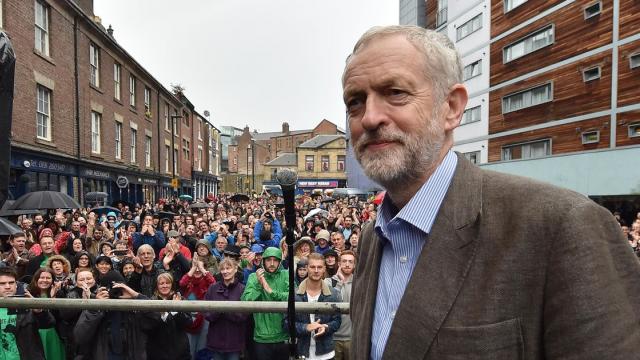
Margaret Thatcher was asked in 2002 to name her most significant achievement. “Tony Blair and New Labour," she replied. “We forced our opponents to change their minds.”
Although deeply unpopular, Conservatives still beat New Labour in this year’s election, with policies Thatcher probably would have been proud of. The defeat triggered a leadership election for the U.K.’s main opposition, and the surprise outright front-runner became the left-wing Jeremy Corbyn.
If he wins he may bury Thatcher’s biggest achievement.
Polls suggest Corbyn will win, and win conclusively, on September 12. Initially an outside candidate, the veteran MP’s popularity has risen rapidly this summer. Best known previously for standing up on a range of social justice issues around the globe, Corbyn and his campaign have stirred the stagnant pond of Westminster party politics – and for the first time in a generation, clear water is emerging between the two major political parties.
Corbyn’s 21st Century New Deal
Corbyn has achieved massive popularity on a mandate to reject austerity. If elected, he would seek to make education free, re-nationalize the railways and energy companies, and rebuild universal healthcare. Additionally, his aims include scrapping the U.K.'s Trident nuclear program, leaving NATO, stopping tax evasion and formally ending the scapegoating of immigrants.
Corbyn has always maintained a unique position in Labour. An MP since 1983, he has consistently rejected New Labour’s neoliberal direction since the mid-1990s. His voice can often be heard speaking at rallies and protests opposing cuts to disability benefits, public sector employees and the healthcare system.
Electoral hope
What's most striking about a Corbyn-led Labour Party is that it will represent a vision of hope for the majority in the U.K.. As New Labour, the party has worked in the interests of big corporations, the City of London, fossil fuel companies, and the war and defense industry. Within the limited scope of Westminster politics, Corbyn may begin a new epoch – his policies smash the neoliberal mantra that there is no alternative to the status quo.
In reaction, corporate media and pro-big business figures of the Labour Party have suggested Corbyn is "unelectable": too left wing and too radical. But public opinion is far closer to Corbyn than the policies of New Labour or the Conservatives. The majority of Britons, in fact, favor maintaining public services. Millions marched – with Corbyn among them – against New Labour’s support for the Iraq War (for which Corbyn recently said the party should apologize). And also like him, far more Britons oppose fracking than back it.
Labeling Corbyn hard-left speaks volumes about how far mainstream political discourse has shifted to the right. Corbyn may take a socially progressive stance, but his political agenda is more reformist than radical. This is shown not least by his long-standing commitment to the Labour Party.
In terms of his reforms, Corbyn wants to reign in the 1% through proposals such as a maximum wage, enact strong banking regulationsand institute a Tobin Tax to curb and reduce speculation and predatory capitalism – but he still wants to transform, not abandon, a system based on profits.
His campaign website states: “[We need] fair taxes for all – let the broadest shoulders bear the biggest burden to balance the books.”
This vision, of course, relies on corporations profiting further in order to pay more tax. In broad terms, Corbyn’s economics echoes the New Deal and the Keynesian policies of U.S. President Franklin Roosevelt, which lifted the U.S. out of the Depression in the 1930s through increased public spending and greater regulations on corporations and capital.
Claims that Corbyn is unelectable also falter in light of the massive success enjoyed by the Scottish National Party in the last U.K.-wide election. The SNP won 56 of 59 seats in Scotland on a mandate very similar to Corbyn’s proposals.
The Demise of New Labour
Labour’s leadership campaign was sparked by its failure in the spring election. In Scotland, one of Labour's traditional heartlands, the party was all but decimated. Joining the Conservatives in Project Fear – the campaign against Scottish independence – New Labour added to the public's anger against them for backing George W. Bush’s "War on Terror" and giving light-touch financial regulation to the City of London leading up to the economic crash. It seems unlikely that Corbyn could rekindle Scottish Labour, not least as its leadership is also decidedly "Conservative-lite."
Instead, his victory may signal the end of New Labour in the rest of the U.K. in a different way. The party may again become a party of mass-membership, as the current leadership campaign swelled to over 600,000. New Labour’s corporate donors are already running for the hills. Meanwhile, the New Labour wing of the party is attempting to counter Corbyn’s aggressive moves; the party hierarchy has been accused of purging and disqualifying new members to reduce Corbyn’s vote. There is also already talk of right-wing coups to oust Corbyn.
The grassroots movement to rekindle a left-wing Labour Party naturally faces fierce opposition as it represents a direct challenge to the 1%. The party's right-wing metamorphosis into New Labour has enabled a New Conservativism as well, as politics push further to the right. The current government’s severe austerity cuts go beyond the neoliberal dreams of Thatcher’s governments. Like Scottish independence, a progressive Labour Party breaks the 1%’s mantra that Britain must continue with permanent austerity.
Establishment voices have already inaugurated a new Project Fear to undermine Corbyn. Tony Blair, who drove the country into an illegal war for oil, has suggested Corbyn’s leadership will drive Labour off a cliff. Meanwhile, The Telegraph has compared Corbyn’s victory in the election to Nazis occupying France.
How to win? Beyond exhibiting progressive values, Corbyn will need to harness his background working with mass movements to politically survive the onslaught from the 1% and the challenges posed by Conservatives. But change is in the air in U.K. politics, and it's never too late to wonder whether history can again be made.
3 WAYS TO SHOW YOUR SUPPORT
- Log in to post comments

